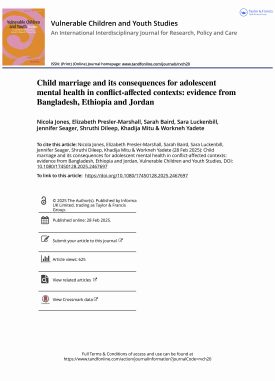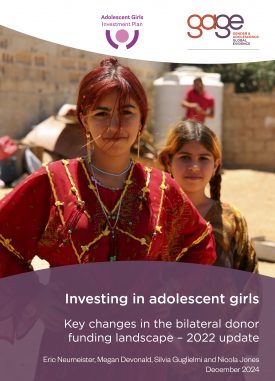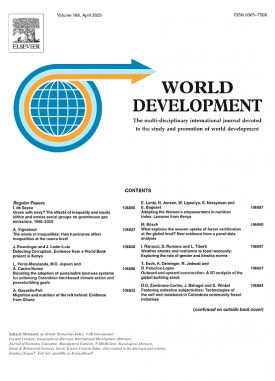Ethiopia declared the first case of coronavirus on the 13 March 2020, and while numbers of confirmed cases initially remained low, by late July 2020 the number of confirmed cases had exceeded 15,000, with over 200 deaths. Across the globe, countries are reporting multi-dimensional health, economic and social effects of covid-19 and the ensuing policy responses to contain the disease. The situation is expected to be potentially more challenging in low-income countries like Ethiopia where there is a weak health system, compounded by recurrent political unrest. The outbreak of covid-19 is expected to put women, girls and young people at heightened risk, given that containment measures to slow the pandemic including lockdowns and disruption of basic services are already being seen to compound existing economic and social inequalities. Emerging evidence suggests that resources are being diverted from routine health services, further reducing the already limited access of many girls and young women to sexual and reproductive health services. Rapid virtual research by GAGE has highlighted the challenges that young people are facing in rural communities in Afar, Amhara and Oromia, and in Dire Dawa city, but as yet very little is known about the specific experiences of vulnerable urban youth. This brief focuses on youth (aged 14–24 years) who are street connected or involved in commercial sex work, and is part of a series exploring the impacts of covid-19 and the ensuing government policy response on vulnerable urban youth in Ethiopia.
Suggested citation
Amdeselassie, T., Emirie, G., Iyasu, A., Gezahegne, K., Jones, N., Mitiku, E., Negussie, M., Presler-Marshall, E., Tilahun, K., Workneh, F. and Yadete, W. (2020) ‘Experiences of vulnerable urban youth under covid-19: the case of street- connected youth and young people involved in commercial sex work.’ Policy brief. London: Gender and Adolescence: Global Evidence. (https://www.gage.odi.org/publication/experiences-of-vulnerable-urban-youth-under-covid-19-the-case-of-street-connected-youth-and-young-people-involved-in-commercial-sex-work/)


